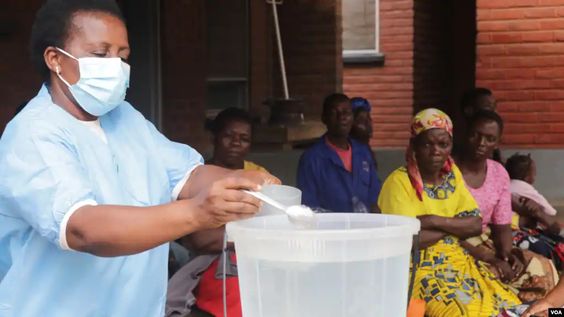Health
Malawian government is criticised by experts for closing schools due to cholera outbreak

People in Malawi who care about education and health have criticised the government’s decision to close schools in two cities to deal with a cholera outbreak.
According to a statement released Monday by the Presidential Taskforce on Coronavirus and Cholera, all primary and secondary schools in the country’s capital, Lilongwe, and economic center, Blantyre, are closed.
Khumbize Kandodo Chiponda, co-chair of the task force and Malawi’s minister of health, said at a news conference on Tuesday that the decision was made because the number of cholera cases in the two cities is still going up.
As of Monday, more than 620 people had died as a result of the bacterial disease, which spreads through contaminated water, out of the 18,222 cases reported since the outbreak began in March.
If the schools continue to be open, Chiponda raised concern for the safety of the pupils and other people, noting that in just seven days, Blantyre had 792 cases with 36 fatalities and Lilongwe had 536 cases with 36 fatalities.
However, advocates for Malawian students’ rights to education and health argue the suspension came at the wrong time.
At a news conference on Monday, Hastings Moloko, a trustee for the Private Schools Association of Malawi, said it was absurd to halt instruction in just two of the 28 affected areas.
He declared, “The playing field is not leveled.”” The affected schools include those in Lilongwe and Blantyre. Students somewhere else in the nation are learning while other students are not. However, these kids will take the exact same tests at the exact same time. “Students from Blantyre and Lilongwe would therefore have less time to complete their curricula.”
Additionally, according to Moloko, there is no scientific proof that cholera spreads more quickly in schools than in families.
An acute diarrheal infection called cholera is brought on by consuming tainted food or drink. If left untreated, the illness can kill both children and adults within hours.
The measure, according to Malawi’s minister of education, Agnes Nyalonje, is intended to protect the lives of the students in these two cholera-prone districts.
The challenge, she noted, is striking a balance between the preservation of life and ongoing education. “Information available to us indicates that there are currently 1,262 boreholes or water supplies needed in schools across the board.” Additionally, we assert that good personal hygiene and good school hygiene must coexist.
Nyalonje said that, just like when the schools were closed because of the COVID-19 outbreak, her government has set up ways for students in closed schools to take classes through distance learning.
